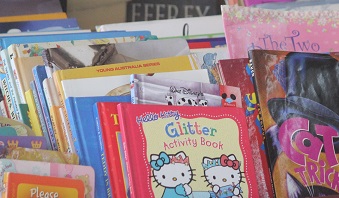Improve Childrens Reading
MOTIVATING A CHILD TO READ
Why do some children take to reading with a natural passion, whereas others struggle?
Some children appear to love reading. Others don’t.
What changes?
Very young children will often enjoy being read to by an adult. As they grow, they start to learn to read for themselves and they can find this difficult and complicated. The learning to read process can actually put some children off reading. This may be a permanent thing or it can be temporary.

The Meaning of Life
As children age and develop, they will start to question things – how things work, the meaning of life, religion, why bad things happen, and so on. This can encourage them to read and find out more information beyond what adults may think or know. Children will want to find their own meaning and explore their own thoughts about things, so this can motivate them to read more around topics of interest.
Keeping Them Motivated
When children are learning to read, parents do most of the reading to them. However, once young children have learnt to read, parents can keep them motivated by encouraging those children to read aloud. It doesn't need to be all the time, just some of the time. This way, parents can continue to involve their children in a shared experience. It also gives them confidence and helps them to carry on improving their reading and vocal skills. Using exclamations of enthusiasm, surprise and intrigue will also foster enjoyment and participation in children.
Use of Rewards
When it comes to encouraging appropriate behaviour, many adults use rewards to shape children's responses. The same principles can be applied to reading. In order to do this well, without dissuading the child from reading or making them feel manipulated, rewards should be meaningful and understood by the child.
One way to do this is through a star system. The child is awarded with a gold or silver star for completing a book. The star is affixed to a chart and displayed somewhere where it is clearly visible. Once the child has accumulated a certain amount of stars these can be exchanged for a reward of some sort (perhaps even the next book in a series they have been enjoying reading).
Beyond Books

A child should be encouraged to read in a way that suits them. Some children may love the feel of a book, sitting there holding a book and reading or looking at pictures, whilst other children may prefer to read online or read e-books.
Some children struggle to see any reason to read books, but may respond when they find a purpose elsewhere.
- Some develop an interest in computer games, and need to read to be able to play the game.
- Some children become obsessed with a hobby or sport, and discover they need to read to learn more about this passion.
It is best to go with what the child prefers. The main aim is to get children reading and encouraging them. So if a child prefers to read e-books - let them, if you are able to. If they prefer reading paper books – again let them. Books and e-books do not have to be expensive. They can be borrowed from local libraries or downloaded for free in some cases. Or books can be purchased second hand or lent between friends.
Parents as Role Models
Children who grow up in home where parents read are also more likely to spend time reading. Younger children, in particular, are strongly influenced by the key role models in their lives and typically their parents are the most influential figures. If parents have plenty of reading material around the home this will reinforce a child's interest in books and reading.
Another thing parents can do is to set up bookshelves for their children in their bedrooms. Just seeing the books sitting there will tempt them to pick them up and look at them. As they get older, parents might set up an e-book library on a computer for them.
Cultural Factors
Obviously what is available for reading will vary from culture to culture and in different countries. Not all countries or children will have access to e-books or libraries, so it does depend on what is available and finding the best route to encourage a child to read.
Above all Reading should be FUN! Children should be encouraged to think of reading as a fun thing to do, a way to learn, to imagine, create, and explore, a means to find out things they did not know before. Adults – parents, teachers, grandparents and others need to make children see that. An adult who shows that they find reading boring or uninteresting will soon discourage a child from reading, so it is essential to show enthusiasm for reading. And if an adult isn’t interested in reading – perhaps they are not reading the right books! Choose books that both you and the child enjoy.
Choosing What to Read
Sometimes the wealth of choice of children's books can seem overwhelming. There are so many different titles to choose from which may make decisions difficult. Nevertheless, there are some ways to narrow down the field.
- Look for award winning authors or books - awards for writing or illustrations are often emblazoned on the cover. Where an author is particularly popular, or well established, you will tend to see their name given the same or more prominence on a book cover than the actual book title.
- Choose books which are riding high in best seller lists - they are usually there for a reason.
- Encourage children to join school or local book clubs - a good way of sharing ideas about what to read.
- Join an online book club or reading group.
- Ask schools or reading institutes for recommended reading lists.
- Do searches on the internet.
Learn more about Children's Writing
Would you like to write for children? Or would you like to learn more about children's writing so you are able to help them more with their reading and their appreciation of it?
We can help.
We offer a wide selection of courses which are taught by our specialist Writing And Journalism tutors. The courses include Children's Writing. The course is designed to give you a greater understanding of how children think, and develop an ability to analyse and delve deeper into children's texts.
If you have any questions about writing for children, or want to know more about any of our courses or studying with ACS, please get in touch -
Call us on (UK) 01384 442752, or (International) +44 (0) 1384 442752, or use our FREE COURSE COUNSELLING SERVICE to submit your questions to our Writing And Journalism tutors - they will be pleased to hear from you and happy to help.
[14/03/2025 23:01:56]